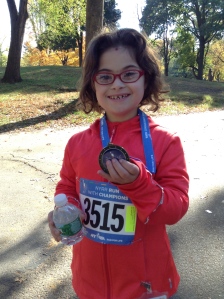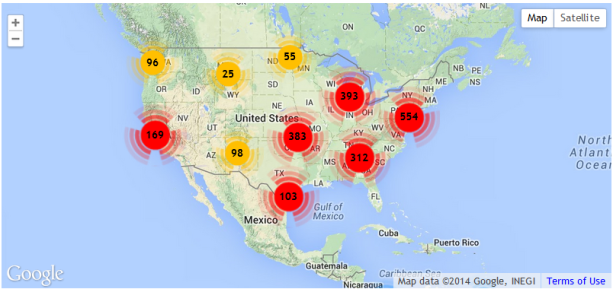 As a senior vice president with Lexington Insurance Company (part of powerhouse firm AIG), Debbie Morris knows a good venture can pay dividends. As one of our newest board members, Debbie sees cognition research, long overlooked and well underfunded by the government, as one of the most worthwhile investments for people with Down syndrome, one with the power to positively ripple beyond the Ds community.
As a senior vice president with Lexington Insurance Company (part of powerhouse firm AIG), Debbie Morris knows a good venture can pay dividends. As one of our newest board members, Debbie sees cognition research, long overlooked and well underfunded by the government, as one of the most worthwhile investments for people with Down syndrome, one with the power to positively ripple beyond the Ds community.
“People with Down syndrome go to school, have jobs, and bring joy to those around them. People naturally gravitate toward them; my husband and I call their 21st chromosome ‘the love chromosome,’” said Debbie. “Investing in the future of the Down syndrome population helps everyone – not just the Down syndrome community.”
While Debbie calculates sound reasons for investing in this community, she credits her daughter ten-year-old Sophia, who has Down syndrome, as being her own wonderful dividend.

“Rock star” Sophia is Debbie’s inspiration for everything she does in the Down syndrome community.
“She’s a rock star. She has such personality; she’s the love of my life,” laughed Debbie. “There’s so much to learn from people with Down syndrome. Sophia teaches me how to slow down and appreciate the moment. I assure you this is no easy task!”
The ability to stop and slow down allows Debbie a moment to focus on the long-term. “I’m not a scientist and don’t feel the need to understand all the details of the research. I love the idea that a drug therapy may help Sophia and her friends get better jobs or live outside the home more successfully,” she explained. “And let’s not forget how important the research is to other projects and initiatives, like a greater understanding of Alzheimer’s. LuMind has made incredible progress in such a short time. I’m thrilled to be part of this amazing organization.”
Debbie puts her commitment to work for Sophia and others with Down syndrome. In addition to joining LuMind Foundation’s Board, she serves as President and Co-Founder of Gigi’s Playhouse in New York City. She’s also been a long-time member of the committee for LuMind’s ROMP FOR RESEARCH, which held its annual fun fundraiser this October.
Over the past ten years of advocacy and action, Debbie has noted how the Down syndrome community and people around them have evolved.
“I love the thought that things are changing for this community. Things keep getting better. Now is the time to invest in the lives of people with Down syndrome,” she counsels everyone, not just people blessed with a family member with Down syndrome.

 Please join us in welcoming new Board Member, Hampus Hillerstrom who will also be taking the lead on our Development Committee.
Please join us in welcoming new Board Member, Hampus Hillerstrom who will also be taking the lead on our Development Committee.





